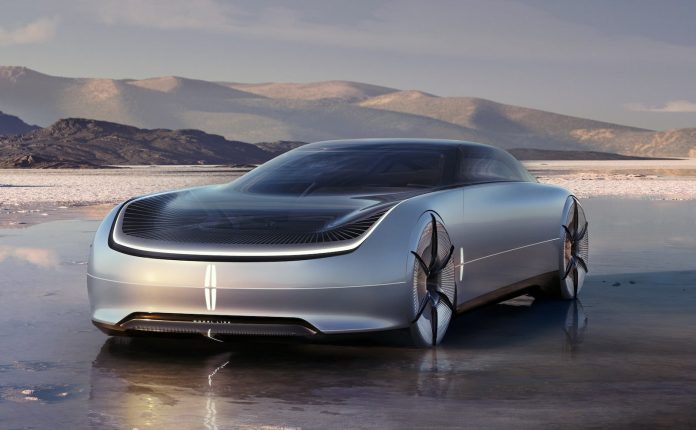While the Ford brand has generated plenty of buzz — and strong sales — with its first two long-range battery-electric vehicles, the Lincoln brand has been sitting on the sidelines. But the Model L100 Concept making its debut this weekend shows it’s finally ready to get into the game.
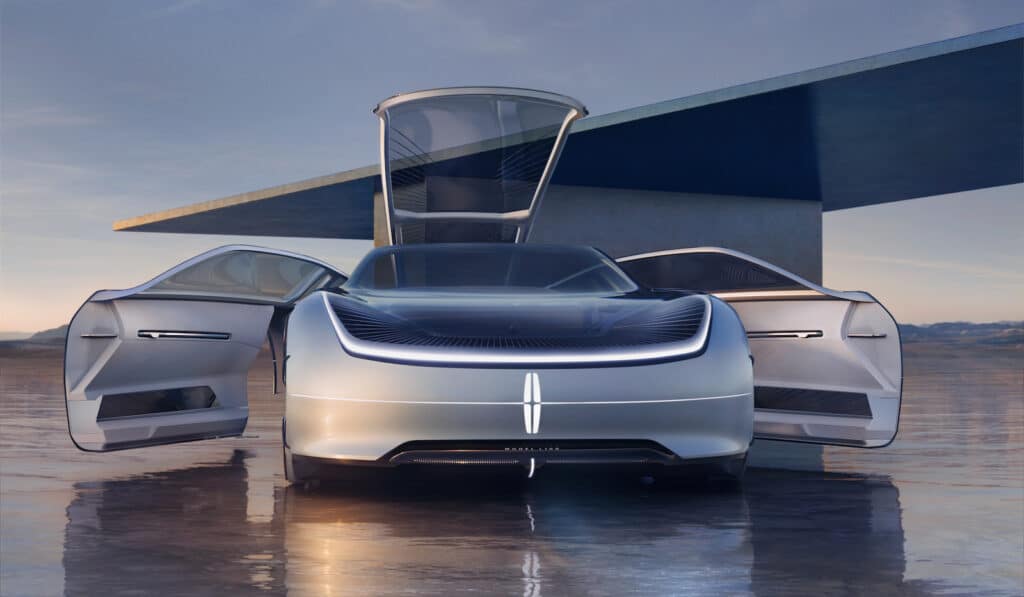
And when it does, Lincoln could have a leg up on the competition — at least if the prototype is any indication. It uses “next generation battery cell and pack technologies,” the luxury brand said in a statement. While it isn’t offering specific details, Ford is already field testing solid-state batteries that could yield major advantages over current lithium-ion technology.
Making its debut at the upcoming Pebble Beach Concours d’Elegance, the L100 Concept arrives at a significant moment for Lincoln, marking the brand’s 100th anniversary. “Lincoln has always been special to me and my family, especially my father and my grandfather,” said Ford Chairman Bill Ford Jr. “If there is one secret to Lincoln’s longevity, it is the brand’s ability to balance its core values with a desire to innovate and create the future.”
Looking to rebound

After years of decline — with former Ford CEO Alan Mulally giving serious thought to killing the brand — Lincoln is struggling to regain its former glory. It has adopted a new design language and refocused its line-up, among other things. And products like the Aviator SUV have begun rebuilding its momentum.
The Model L100 heads off in a new direction, however, reflecting both the challenges and the freedom offered by battery-electric technology.
The concept is long, low and wide, picking up on some classic luxury cues, while clearly emphasizing the aerodynamic details needed to maximize EV range and performance.
There is no conventional grille, with no engine compartment needing cooling air. A wrap-around light bar flows across the crossover’s nose and up along the hood’s cutlines. Backlit logos on the nose and front fenders make it clear this is a Lincoln. What the brand describes as “smart wheel covers” help reduce wind resistance while also using light, Lincoln says, “to communicate motion, battery life and human presence.”
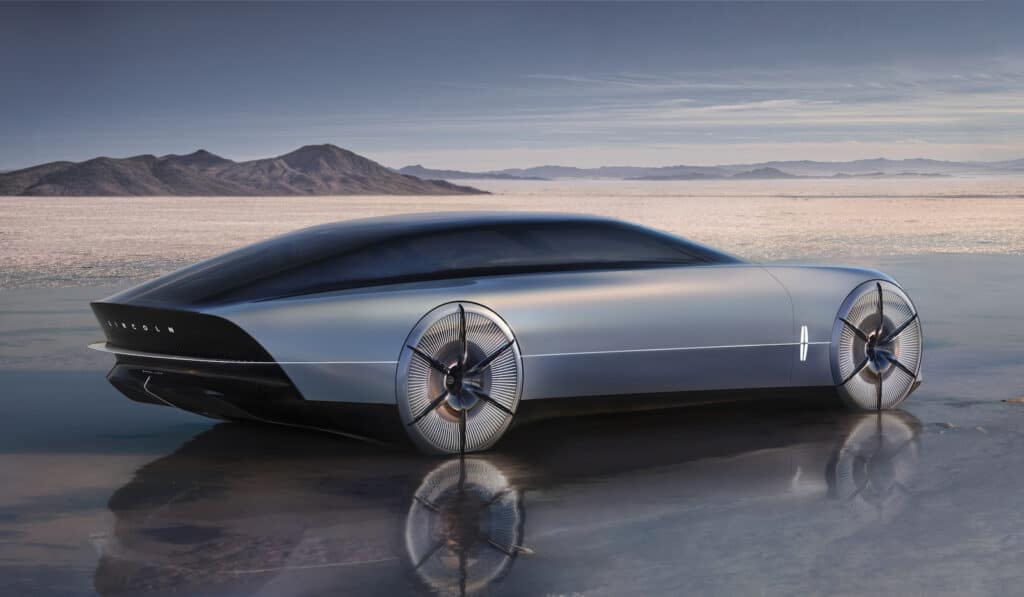
The L100 features an all-glass roof and reverse-opening doors. And it back end features broad shoulders and a large swing-up hatchback.
Going inside
As a driver approaches, the vehicle gets itself ready, among other things, triggering a “symphony of light,” and prepping the cabin and vehicle settings.
The interior is bathed in amethyst-accented suede made of recycled plastic. Other materials, the automaker notes, are animal-free.
“The digital floor, canopy and ambient lighting all harmonize to create a personalized experience that can enhance your mood,” Lincoln’s statement declares. “Orchestrated like a fine-tuned symphony along with interior lighting that harmonizes with sound, scent and touch, the digital floor transports passengers to the sanctuary of tomorrow.”
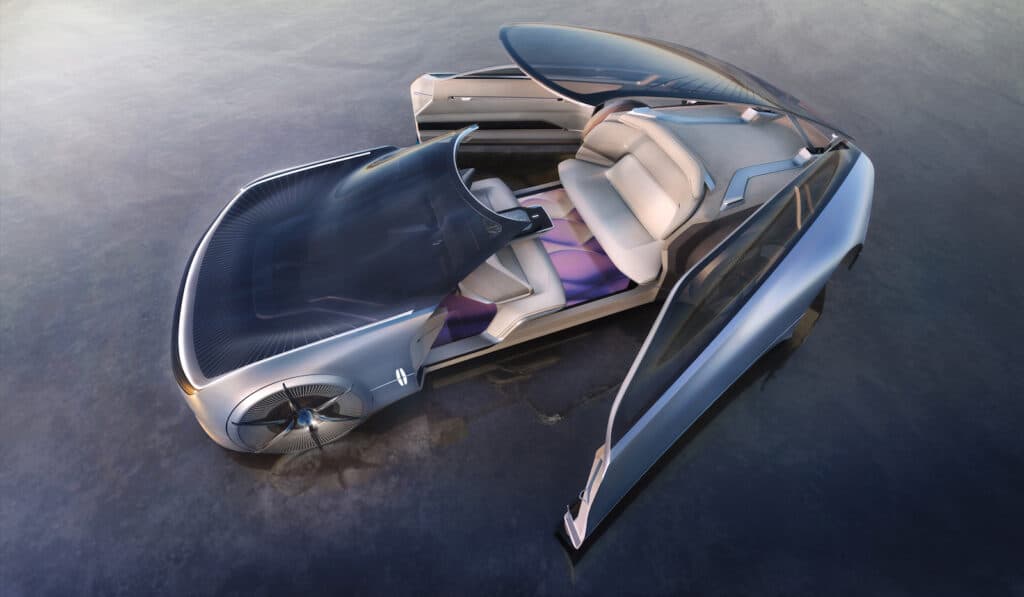
Among the more quirky details, the interactive center console features a jewel-like chess piece controller. Among other things, it replaces a conventional steering wheel.
The cabin seats can be reconfigured to create a “social seating” layout “tailored for the occasion.” With front and rear passengers thus able to sit face to face, that suggests the Lincoln L100 Concept is envisioned to offer fully autonomous driving capabilities.
Powering up
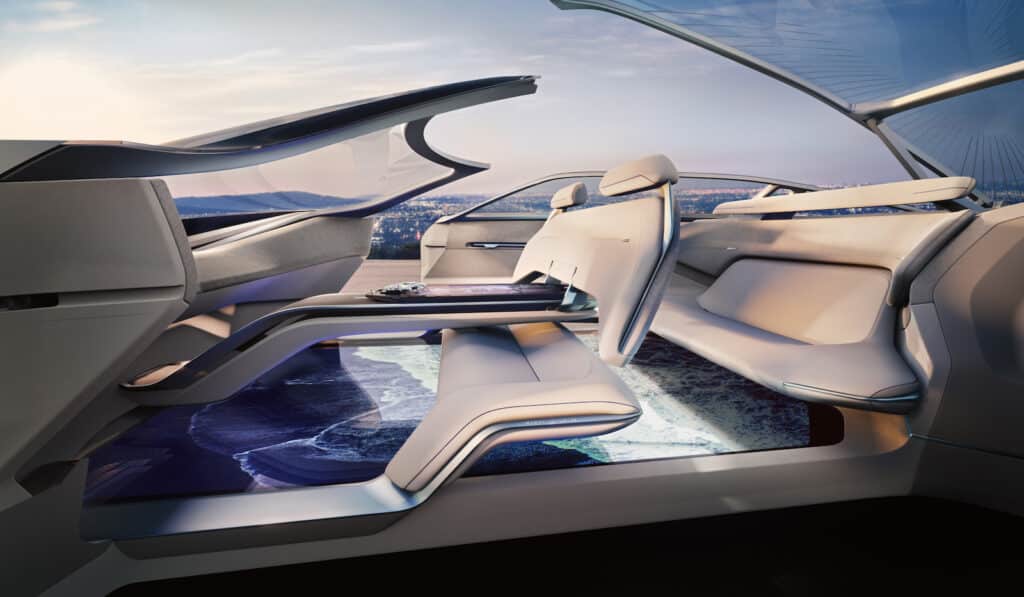
Unfortunately, Lincoln is offering little more than vague details about the show car’s technology beyond noting that it is a battery-electric vehicle.
But it’s easy to assume that those “next-generation” batteries are solid-state, a technology widely expected to supplant current lithium-ion chemistry by early in the second half of this decade. Ford has invested heavily in Colorado-based Solid Power, one of the perceived leaders in the development of solid-state batteries.
It’s widely believed they will offer a number of advantages, including greater energy density — meaning smaller, lighter batteries with significantly greater range. They’re expected to cost less and charge much more quickly. And, by eliminating the gel used in conventional batteries, solid-state technology should eliminate the risk of fire associated with current cell chemistry.
“Concept vehicles allow us to reimagine and illustrate how new experiences can come to life with the help of advanced technologies and allow our designers more creative freedom than ever before,” said Anthony Lo, chief design officer, Ford Motor Co. “With the Model L100, we were able to push the boundaries in ways that evolve our Quiet Flight brand DNA and change the way we think about Lincoln designs of tomorrow.”

